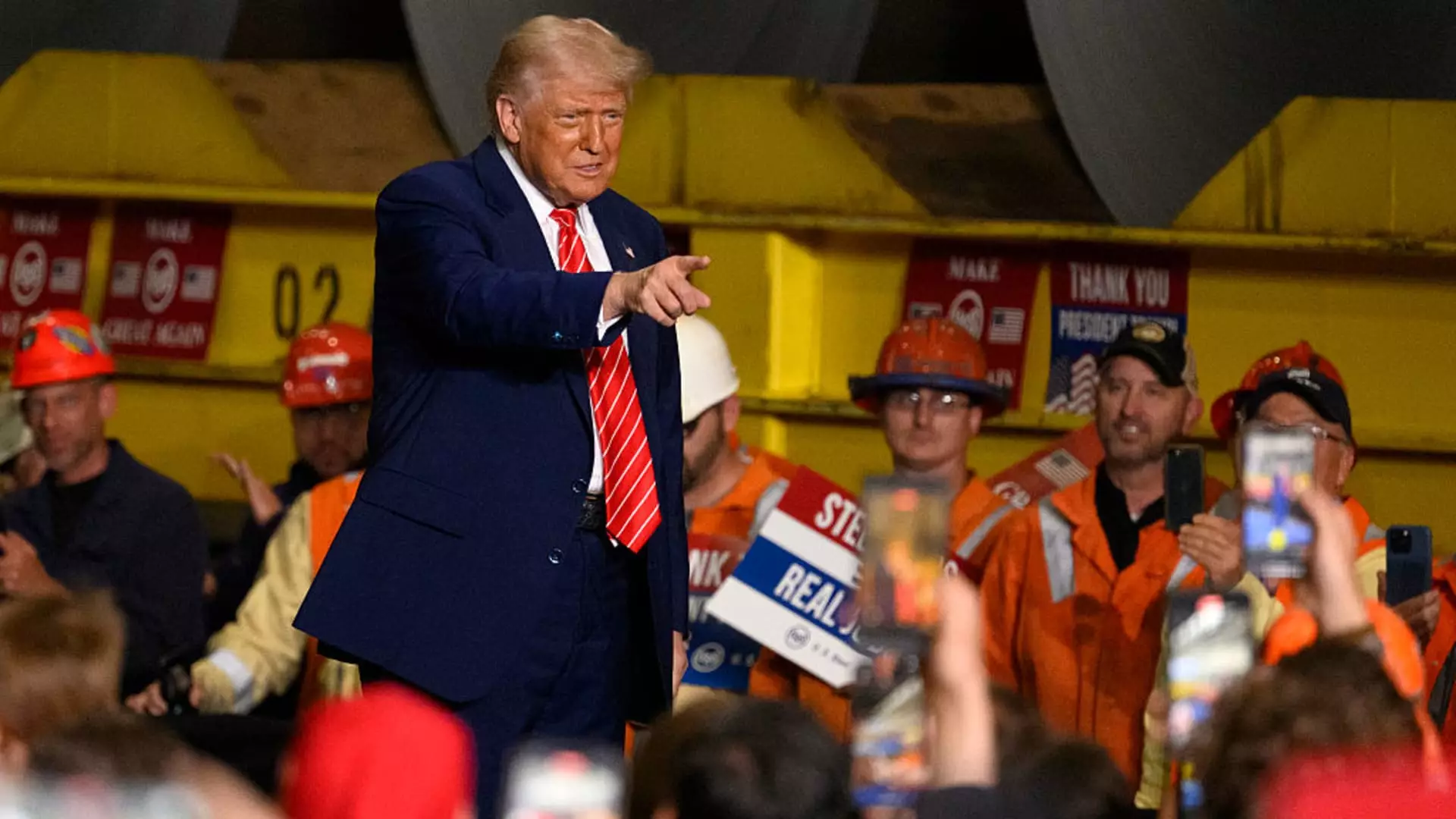In a stunning exhibition of economic self-sabotage, President Donald Trump’s decision to double tariffs on steel imports has sent shockwaves throughout the global economy. The European Union (EU), a cornerstone of international trade, has not only expressed its disapproval but also branded the tariff hike as a significant setback in efforts to achieve a negotiated resolution in the escalating trade tensions between the U.S. and its allies. Such a unilateral move not only demonstrates a lack of foresight but also jeopardizes the fragile equilibrium of global trade relationships, further entrenching the U.S. in a cycle of economic isolation.
The EU’s critique reveals a stark truth: when one country takes aggressive action that heightens economic volatility, the consequences ripple across borders. Their resolute statement acknowledges the reality that as tariffs rise, the costs do not merely accumulate within the confines of the country imposing them; consumers and businesses on both sides of the Atlantic feel the sting. The call for countermeasures underscores the seriousness of this issue, as the EU prepares to respond, potentially setting off a tit-for-tat escalation that could devastate entire industries.
Domestic Implications and Worker Vulnerabilities
Further complicating this intricate web of trade disputes is the response from American labor unions, particularly the United Steelworkers (USW). The union’s condemnation of Trump’s tariffs as a direct assault on Canadian industries and workers puts a spotlight on the often-overlooked human cost of such corporate-led policies. Marty Warren, National Director for the USW in Canada, succinctly encapsulated the crux of this issue: “Thousands of Canadian jobs are on the line.” This rhetorical urgency should prompt leaders to reconsider the ramifications of their policies not just in terms of currency and imports, but in the context of real lives that depend on stable employment within these industries.
A doubling of tariffs creates an immediate pressure cooker for manufacturers who rely on steel and aluminum. This kind of torturous economic climate is not what anyone wants for their constituents; it is a course of action that leads to layoffs, insecurity, and unpredictability. While the administration insists it will avoid layoffs and outsourcing as part of a deal with Nippon Steel and U.S. Steel, the reality is that such assurances are often as fragile as the agreements themselves. When profits are jeopardized, companies may resort to painful measures, and the supposed “no outsourcing” guarantee rings hollow against the backdrop of mounting economic stress.
The Mockery of Trade Negotiations
President Trump’s announcement at a rally in Pennsylvania—a hub of U.S. steel production—served to heighten the theatrics surrounding this serious economic policy. The juxtaposition of nationalistic fervor with the pragmatic realities of international trade serves only to detract from genuine attempts at negotiation. By using a platform traditionally focused on rallying public support to announce policy changes, the president strips these complex issues of their necessary decorum, reducing substantive discussions to mere campaign slogans.
The White House had previously signaled optimism about these negotiations, only to be met with a judiciary snag that temporarily halts Trump’s grand tariffs. The U.S. Court of International Trade’s ruling that the president may have overstepped his constitutional authority should be a wake-up call for this administration. This scenario exemplifies why leaders must approach trade diplomacy with caution and respect for both domestic and international legal frameworks. Ignoring these checks risks not just legal entanglements, but public trust and collaboration between nations.
The Path Forward: Reassessing Our Trade Policies
As the United States continues down this troubled path, it is crucial to reflect on whether adversarial tariffs truly serve the interests of American workers or if they merely reinforce a cycle of economic solitude. The call for a comprehensive reassessment of trade policy has never been more urgent. The simplistic notion that imposing tariffs alone can protect U.S. industries fails to address the intricacies of global trade dynamics.
To move forward, governmental strategies must pivot towards constructive negotiation rather than escalating confrontation. There is a profound need for dialogue that prioritizes sustainable economic growth for all stakeholders involved. The current trajectory of aggressive tariffs stands in stark contrast to these ideals and must be recalibrated to ensure a more equitable approach moving forward.


Leave a Reply